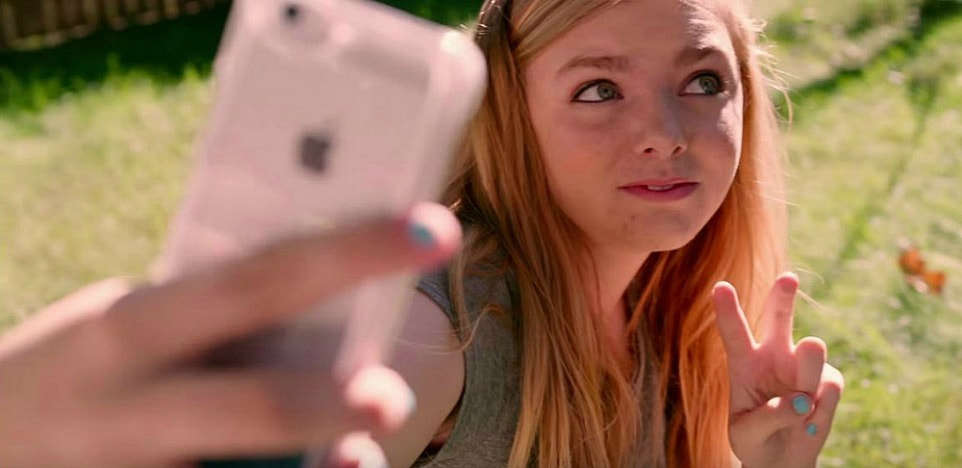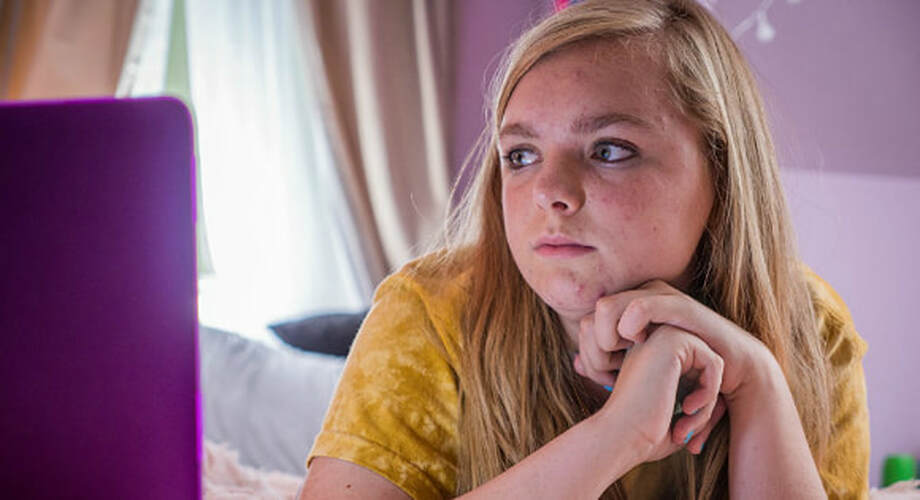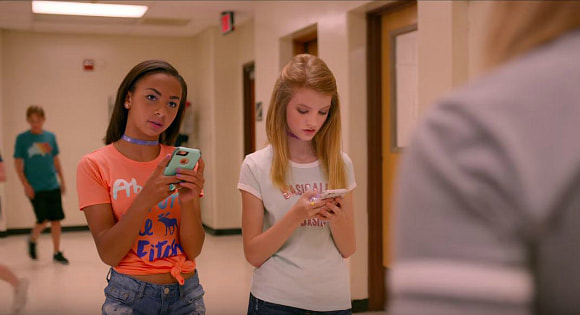Eighth Grade
What is Faith to a Shy, Lonely,
Thoughtful Thirteen Year Old?
Directed by Bo Burnham
|
Faith in God as Faith in Yourself
What is faith to a shy, lonely, thoughtful thirteen year old? It may be faith in God as a higher power. It may be faith in the teachings of a given religion. But surely it is also, and perhaps most importantly, faith in yourself. God comes to you, not as a distant authority in heaven, but as the self you can become, if you don't try to change just to fit the expectations of peers. In the case of the feature film Eighth Grade, God comes to Kayla as "Kayla." God is also a holy spirit. God comes to Kayla as the psychological process by which she seeks Kayla. When Kayla says that "being yourself is not changing yourself in order to impress somebody else," God is the lure within her to say just this: a lure to distance herself from peer pressure and to be herself. And when Kayla seeks authentic face-to-face connections in the real world, God is in the seeking as well. For Kayla, age thirteen, faith is trust in the possibility of becoming Kayla. In Spirituality and Practice, Frederic and Mary Ann Brussat speak of this as the practice of You. In their words: "Each of us is a work-in-progress. The spiritual practice of you challenges us to become all we are meant to be as God's beloved sons and daughters. We are, after all, co-creators of the Great Work of the universe. By attuning ourselves to what in different traditions has been called the image of God, the everlasting soul, or the higher self, we are able to fulfill our mission in life." (Spirituality and Practice: You) I might simply add that sometimes this higher self is very ordinary, very specific. God, or at least the image of God, is thirteen years old with acne and a beautiful soul (Jay McDaniel) Interviews with Director |
Excerpts from a Review by Frederic and Mary Ann Brussat in Spirituality and Practice"Kayla (Elsie Fisher) is a conflicted 13 year old who is lonely, shy, and socially awkward. She has no close friends at middle school where she moves through the crowded hallways as a nearly invisible person. Kyla secretly yearns to relate in some simple and satisfying way to Kennedy (Catherine Oliviere) and Aiden (Luke Prael) who have been chosen as having the "Best Eyes" by their peers.
At home her single parent father (Josh Hamilton) tries to have meaningful conversations during dinner while Kayla is busy checking out things on her cell phone. She is alternatively irritated or embarrassed by his attempts to lift her spirits or share with her some of the small shards of wisdom he has gathered over the years. Kayla has found one way to try to connect with teens — her own YouTube channel where she posts advice videos. "Being yourself is really hard," she says in one of them. "It is not changing yourself to impress other people." At school, she's been classified as "most quiet" by classmates but Kayla sees herself as funny, cool, and talkative. The challenge is to follow your inner compass: "Basically, you know, like be yourself, and don't care about what other people think about you." Like so many of her fellow teenagers, Kayla is constantly trying to improve herself. Notice the sticky notes on her mirror and elsewhere with self-help messages such as "Go get em!" and "Dream Big!" To look more appealing, she covers up her embarrassing acne and runs through a daily makeup routine with a YouTube tutorial. She advises others, and herself as well, to put themselves out there. Kayla wants to be the best person she can be, but the only other individual in the world who shares this quest is her father. *** Sherry Turkle studies the effects of digital technology on relationships, family life, and work interactions. In Reclaiming Conversation: The Power of Talk in a Digital Age, she notes that many youth are unable to go for more than a couple minutes without checking their phones and that they prefer texting over talking. She notes that researchers have discovered a 40 percent decline in empathy among college students. That is a character quality that develops and flourishes in face-to-face conversations. Watching Kayla navigate her digital world, we found ourselves feeling sad for her — but not because of her digital addiction. We just remembered our own experiences decades ago in middle school, which seems to us to always be a really horrible time! Yet here is Kayla, finding her own way, using the technology available to her, figuring out when enough is enough, determined to establish face-to-face relationships in the real world. We totally understood why her father could say, "The more I watched you, the less scared I got about you being okay." We aren't worried about her either. |


